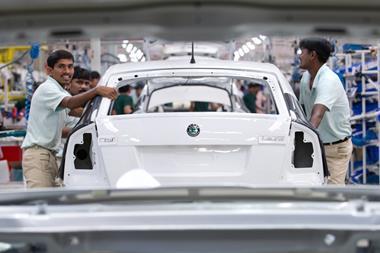The UK’s competition watchdog has fined major carmakers and two trade bodies over £77m for colluding on green advertising. A whistle-blower tip from Mercedes-Benz exposed years of consortium activity that limited consumer choice.

In a blow to the credibility of environmental marketing claims across the automotive industry, the UK’s competition watchdog has imposed fines exceeding £77m on ten carmakers and two industry associations for colluding to limit competition on sustainability claims.
The Competition and Markets Authority (CMA) found that the firms had entered into a long-standing agreement to refrain from advertising the recyclability of their vehicles, thereby denying consumers a clear picture of their environmental impact. This covert arrangement spanned from May 2002 until September 2017, and included prominent manufacturers such as BMW, Ford, Jaguar Land Rover, Mitsubishi, Nissan, Peugeot Citroën, Renault, Toyota, Vauxhall and Volkswagen. Jaguar Land Rover joined the agreement in 2008.
”Agreeing with competitors the prices you’ll pay for a service or colluding to restrict competition is illegal and this can extend to how you advertise your products”
- Lucilia Falsarella Pereira, senior director of competition enforcement, CMA
The scheme, laid out in a document known as the “ELV Charta”, was designed to avoid a so-called “competitive race” to promote recyclability in marketing materials. Often referred to internally as a “gentleman’s agreement”, it effectively prohibited the firms from promoting what proportion of their vehicles could be recycled at end-of-life, or, in most cases, what percentage of recycled materials they used in production. Renault, while part of the arrangement on recyclability, was the only manufacturer not implicated in the agreement concerning recycled content.
The consortium was facilitated by two influential automotive trade bodies: the European Automobile Manufacturers’ Association (ACEA) and the UK’s Society of Motor Manufacturers and Traders (SMMT), both of which have also been fined.
The CMA launched its investigation following a tipoff from Mercedes-Benz, which had itself been part of the collusion but escaped penalties under the regulator’s leniency policy. Mercedes-Benz’s cooperation proved decisive in the swift unraveling of the case.
“Agreeing with competitors the prices you’ll pay for a service or colluding to restrict competition is illegal and this can extend to how you advertise your products,” said Lucilia Falsarella Pereira, senior director of competition enforcement at the CMA.
”The UK findings come on the heels of a broader crackdown by the European Commission, which in March 2022 fined fifteen carmakers and ACEA €458m (£392.8m/$501m) for similar collusion across the EU, also in relation to end-of-life recycling”
“This kind of collusion can limit consumers’ ability to make informed choices and lower the incentive for companies to invest in new initiatives. Today’s fines show our commitment to taking action when competition law is broken. In accordance with our leniency policy, we’ve given discounts to those who came forward with information and cooperated at an early stage, which helps to get the swiftest outcomes.”
That leniency policy saw further application in this case. Following the opening of the investigation, the SMMT, Mitsubishi and Stellantis – parent company of Peugeot Citroën, Opel and Vauxhall – also applied for leniency, securing reduced fines in return for their cooperation.
Read more UK production stories
- Hairpins and horsepower: how JLR’s copper loops are reshaping EVs
- JLR creates 150 EV manufacturing roles in the UK
- JATCO opens new manufacturing facility to supply electric vehicle powertrains for Nissan’s Sunderland plant
- Coventry and Warwick Gigapark: UK’s answer to EV battery challenges?
According to the CMA, the consortium’s impact was more than theoretical. By suppressing competitive marketing around recyclability and recycled content, the firms prevented consumers from making like-for-like comparisons on environmental performance, weakening incentives for manufacturers to improve sustainability practices and invest in circular economy measures.
Renault defended its role, stating that the activities took place “at a time when the structuring of the ELV (end-of-life vehicle) recycling sector was still nascent, as was environmental communication”. A spokesperson for the French carmaker added: “The practices do not financially harm consumers.”
The UK findings come on the heels of a broader crackdown by the European Commission, which in March 2022 fined fifteen carmakers and ACEA €458m (£392.8m/$501m) for similar collusion across the EU, also in relation to end-of-life recycling.
The full extent of the damage to public trust in green automotive marketing remains to be seen. But the message from regulators is clear. Collaboration on environmental standards is encouraged – but collusion to suppress competitive sustainability claims is not.






































No comments yet